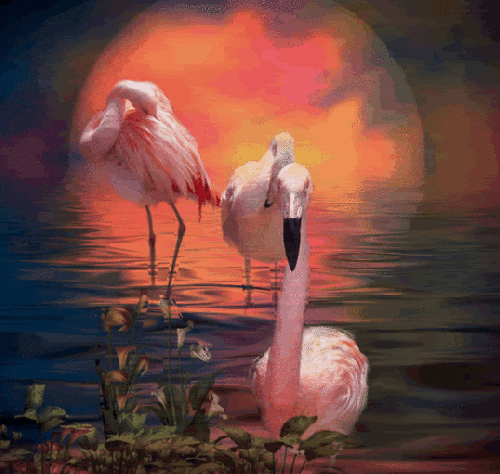

Dream Academy - "Please, Please, Please Let Me Get What I Want" (Official Music Video)
Dream Academy - "Please, Please, Please Let Me Get What I Want" (Official Music Video)
Good times for a change
Seems, the luck I've had
would make a good man turn bad
So please please please
Let me, let me, let me
let me get what I want
this time
Haven't had a dream in a long time
Seems, the life I've had
would make a good man bad
So please please please
Let me get what I want
Lord knows it would be the first time.
Lord knows it would be the first time.

This 80s UK band comprised Nick Laird-Clowes (guitar/vocals, ex-the Act), Gilbert Gabriel (keyboards) and Kate St. John (vocals/oboe/saxophone, ex-Ravishing Beauties). Laird-Clowes, who as a child experienced the last days of the London underground movement at first hand, revived memories of that earlier era with the polished folky-pop ‘Life In A Northern Town’, dedicated to the memory of singer-songwriter Nick Drake. The single, released on the Blanco y Negro label, reached UK number 15 in 1985 (and US number 7 the following year). Hailed, or conversely, derided as one the leading lights of the new breed of English psychedelic revivalists, the band’s momentum was halted by the relative failure of ‘The Love Parade’. They periodically released albums which stuck gamely to their formula, with Pink Floyd member David Gilmour contributing guitar and production work to their third album. St. John, meanwhile, found plentiful work composing incidental music for British television programmes, while Laird-Clowes later resurfaced on Creation Records as Trashmonk.

The Dream Academy also did a Smiths cover song titled "[Please, Please, Please Let Me Get What I Want" which was featured in the film Ferris Bueller's Day Off. Laird-Clowes and Gabriel met each other in the late 1970s whilst the former was in a band called The Act. Their idea was to create a songscape different from the power pop groups popular at the time in the UK, by mixing instruments and sounds that had been rarely done prominently before, such as strings, woodwinds, percussion (timpani), and synthesizers. At first, Laird-Clowes and Gabriel called themselves the Politics of Paradise.

Ferris Bueller's Day Off
Laird-Clowes met Kate St John (then of The Ravishing Beauties) at a party and asked her to join his band. The trio settled on the name The Dream Academy and shopped their demos for nearly two years. Their work was rejected by every record label they tried until they finally landed a recording contract with Warner Bros. Records in 1985. Along the way, they made connections with Adam Peters and Pink Floyd's David Gilmour, a friend of Laird-Clowes. Gilmour would go on to produce and/or play on two of their albums and co-wrote one Dream Academy song, "Twelve-Eight Angel".

Dream Academy - "Life In A Northern Town" (Official Music Video)
Dream Academy - "Life In A Northern Town" (Official Music Video)
The band's first single, "Life in a Northern Town" was a worldwide success and sizeable hit in the U.S. charting at No. 7 on the Billboard Hot 100 chart, from an album co-produced by Gilmour. The song also made number 15 in the UK Singles Chart. The single was dedicated to the English singer-songwriter Nick Drake. It was their only major chart success, though the follow up single "The Love Parade" achieved moderate success in the United States.
![The Dream Academy - Everybody's Gotta Learn Sometime [HQ]](https://i.ytimg.com/vi/DjUNtWg9yr0/maxresdefault.jpg)
The Dream Academy - Everybody's Gotta Learn Sometime [HQ]
The Dream Academy - Everybody's Gotta Learn Sometime [HQ]
"Everybody's Gotta Learn Sometime"
Change your heart look around you
Change you heart it will astound you
I need your loving like the sunshine
And everybody's gotta learn sometime
Everybody's gotta learn sometime
Everybody's gotta learn sometime


The band launched a worldwide promotional tour based on the chart success of "Life in a Northern Town" and appeared on the television programmes Saturday Night Live, The Tonight Show, American Bandstand (with Dick Clark), MTV (interview with J.J. Jackson), and Top of the Pops. The Dream Academy's eponymous debut album also reached a wide audience in the U.S. Their two subsequent albums did not match their initial success. The band toured once, in 1991. During the same year, Gabriel and St John decided to leave the group to pursue solo musical interests and projects. Laird-Clowes ultimately decided that he would not go further under the Dream Academy name, and took some time off to travel to Asia and Africa. Shortly thereafter, he began to work with David Gilmour on lyrics for Pink Floyd's The Division Bell, before recording his solo album under the name Trashmonk. Later, he composed the music for and consulted on numerous film soundtracks (including Nick Broomfield's Battle For Haditha, Richard Curtis's About Time and Bernardo Bertolucci's The Dreamers).
David Gilmour from the band Pink Floyd

Bernardo Bertolucci's The Dreamers.
Kate St John performed with Van Morrison for many years and more recently has been musical director for Marianne Faithfull. Gabriel has also worked on numerous projects since the Dream Academy disbanded. They include: The Believers, The Excellent Staircase, Melt21, and The Daze. "Life In A Northern Town" formed the basis of a dance remix by Dario G entitled "Sunchyme", released in 1997 to commercial success in Europe. The song was also recorded by U.S. bands Sugarland and Little Big Town in 2010, for which it was nominated for a Grammy Award. Also, a sample of "Life In A Northern Town" was the basis of Jakaranda's "Never Let You Go", released in 1998 as part of the soundtrack for Disney's The Parent Trap.


Van Morrison

Marianne Faithfull

On 27th October 2016, Laird-Clowes and St John, accompanied by keyboardist Maxwell Cooke and Drummer/Percussionist Daisy Palmer, performed two shows in Tokyo, Japan (Shimokitazawa Garden and Shinjuku Marz) and one performance at Shinsaibashi Music Club in Osaka. Gabriel was not present. The performance setlist included In Places on the Run, Johnny New Light, Hampstead Girl, Love Parade, Life in a Northern Town, The Edge of Forever, One Dream from their first album, newer ones incl. Indian Summer, and Please, Please, Let Me Get What I Want. On 4th February 2017, Laird-Clowes and St John--again accompanied by Max Cooke--performed a 13-song acoustic set at The Tabernacle, Talgarth, Wales.

A little tucked away from the hustle and bustle of more well-known districts such as Shibuya and Shinjuku is Shimokitazawa. A former farming village that turned first into a dense residential area, and later into a thriving arts and music community. It has been described as bohemian, hippie, artsy, indie, and in recent times, hipster; Shimokitazawa is all of these things.

Within just a few minutes train ride from Shibuya and Shinjuku, Shimokitazawa has become popular as a unique neighborhood. Here you'll find pedestrian-friendly roads and a look that's messy, but attentive to detail. Shimokita, as the locals call it, has somehow escaped from the lure of the many chain stores that are making Tokyo's other districts look more and more alike, and has become a gathering spot for creative people of all kind. Its inhabitants always keep it fresh with alternative shops and avant-garde ideas.
You can also find used book stores and a few shops that sell a bit of everything in Shimokitazawa from flowery tea sets to dusty pieces of old furniture. More often than not these shops will have that improvised look so typical of Shimokitazawa, just like someone opened up shop in their garage.


Scattered and hidden within Shimokitazawa's streets are also many places of wonder for the used record lovers. Japanese and foreign music, old and new, the famous and the underground; they have them all.
Perhaps the most popular of these shops is Flash Disc Ranch, which specializes in 60's and 70's western music. The owner, Tsubaki-san, is always happy to provide his Japanese and foreign clients with information about music and live venues.


Tsubaki-san, owner of Flash Disc Ranch, at his counter surrounded by presents from his clients.
As if it wasn't already enough, Shimokitazawa also hosts all kind of excellent restaurants. Traditional Japanese, European, American, Asian and fusion, there's food for all tastes and budgets. The many ramen eateries in the area have gained Shimokitazawa a reputation as one of Tokyo's ramen hubs, and the combination of cheap and delicious is abundant. At Torisoba Soruto, for example, you can fill your stomach for 650 yen with a bowl of savory noodles served in a chicken and salt broth.


Shimokita doesn't envy any other district. Not even when it comes to the night life. In the late hours, the southern part of the district awakens with lights and music, and a great variety of bars, pubs and izakaya will entertain you until the break of dawn. There are also a number of livehouses in the area. 808LOUNGE is one among the many gems of Shimokita's night life. Right by the station, yet tucked away in an alley away from the busy roads, this Hawaiian style bar is one of the cosiest places in the area.
Although the interior is always filled with interesting objects and plants, the real attraction here is Uno-san, the owner. Aside from making the most amazing mojito I have ever had (he grows his own mint plants), he often experiments with strange ingredients and creates intriguing concoctions such as kombu (seaweed) vodka, garlic-flavored Coca-Cola and smoked Jameson. Ask him about his ginger syrup, which he makes himself and uses in the creation of absolutely delicious cocktails.

A jar of Mojito (870 yen) filled to the brim with fresh mint

Will to Power - Baby I Love Your Way
Will to Power - Baby I Love Your Way (Official Video)
Shadows grow so long before my eyes
And they're moving across the page
Suddenly the day turns into night
Far away from the city
But don't hesitate
'Cause your love
Your love won't wait, oh no no
(Ooh)
Baby, I love your way every day
(Ooh)
Wanna tell you I love your way every day
(Ooh)
Wanna be with you night and day
Hey, I love your way
If I leave here tomorrow
Would you still remember me?
For I must be travelling on now
There's so many places I've gotta see
But if I stayed here with you girl
Things just wouldn't be the same
'Cause I'm as free as a bird now
And this bird will never change
And this bird will never change
Shadows grow so long before my eyes
With the help of some fireflies
I wonder how they have the power to shine
I can see them under the pines
But don't hesitate
'Cause your love
Your love won't wait
Ooh, baby
I love your way
(Every day)
(Ooh)
Wanna tell you I love your way
(Night and day)
Oh, baby, I love your way
(Every day)
Every day now
Ooh wanna tell you I love your way
(Night and day, night and day)
I love your way
Ooh, baby
I love your way
('Cause I'm as free as a bird now)
Give me you way
Wanna tell you I love your way
(A free bird now)
Ooh baby I love your ways
Ooh, baby I love your way
(Every day)
Ooh, wanna tell you I love your way
(Night and day)
Ooh, baby I love your way
(Every day, every day)
Ooh, wanna tell you I love your way
(Night and day, night and day, oh)
Ooh, baby I love your way
(Night and day)

Biography
Years Active
1987 – present (34 years)
Founded In
Miami, Miami-Dade County, Florida, United States
Members
Dr. J
Will to Power is an American dance-pop group that originated in South Florida in the mid-1980s founded by Miami's Producer Bob Rosenberg. The group recorded a number of hit singles on the Billboard dance and pop charts in the late 1980s and early 1990s, most notably "Baby, I Love Your Way/Freebird Medley", a medley of 1970s hits by Peter Frampton and Lynyrd Skynyrd that reached the top of the Billboard Hot 100 chart in December 1988. The group has also two number one singles on the Billboard Hot Dance Club Play, “Say It’s Gonna Rain” and “Fading Away”, and continues to create music into the 21st century- and is currently performing live (Bob Rosenberg and Elin Michaels).


The early years:
Bob Rosenberg was born on January 18, 1959, in Philadelphia, Pennsylvania. His mother, Gloria Mann, was a pop singer who had two Top 40 pop hits in the mid-1950s on the Sound Records label, "Earth Angel (Will You Be Mine)" and "Teen Age Prayer". After attending school in Florida, Rosenberg became a DJ at various local events, and by 1985 he was working at a Miami CHR radio station, WHQT (Hot 105). He remixed and edited songs as a radio-mix DJ for the station, and these mixes became popular in the Miami area. Rosenberg created a rap record in 1985 that was titled "Miami Vice", based on the popular TV show and its theme song, but MCA Records claimed that Rosenberg had infringed on their copyright. He also remixed and edited the song "Beat Box" for 2 Live Crew's 1986 debut album, The 2 Live Crew Is What We Are. During 1986 and 1987, Rosenberg worked with various other musicians to create original music. He chose the name Will to Power for the group as homage to German philosopher Friedrich Nietzsche's theory of an individual's fundamental Will to Power.

Friedrich Nietzsche was born in Rocken, Saxony (the present-day Germany) on Oct. 15, 1844. He came from a line of Protestant churchman - his father and grandfathers were Lutherman ministers. He studied Classical literature and language at the universities in Bonn and Leipzig. At the age of 24, Nietzsche became a professor at the University of Basel in Switzerland. After reading the works of the German philosopher Schopenhauer, Nietzsche became a philosopher and began living a life of solitude. He agreed with Schopenhauer that there is no God and life is filled with pain and suffering, but Nietzsche came to his own conclusion that humans must get everything out of life and set out to find out how to best do that. Nietzsch fell for the brilliant music of Richard Wagner. In 1868, Nietzsche met Wagner and thought that Wagners operas were a revival of Western civilation. They became close friends, but he soon rebelled against both Wagner and Schopenhauer by writing the anti-Wagner "The Case of Wagner" in 1888 and "Nietzsche versus Wagner" in 1895.
His first great work was "The Birth of Tragedy" in 1872, which was a new theory of the origins of classical Greek culture. Nietzsche believed that Greek culture could be best understood as resulting from a conflict of 2 human drives: the "Apollonian" (clarity, beauty and order) and the "Dionysian" (ripping apart illusions to see reality). Nietzsche was totally against religion, in particular Christianity. Nietzsche proclaimed that "God is dead" in his most famous work, "Thus Spake Zarathustra," (1883-1892) saying that most people do not believe in God and religion is no longer the foundation for morals. "Thus Spake Zarathustra" was not successful when it was first published, but is now considered a masterpiece in world literature. In 1896, the composer Richard Strauss composed a tone-poem called "Also Sprach Zarathustra" based on Nietzsche's words.

WILL TO POWER - I'm Not in Love (with lyrics)
Will To Power - I'm Not In Love (1990) HQ
Nietzsche's works "Beyond Good and Evil" (1886) and "The Genealogy of Morals" (1887) dealt with the origins of moral values. Nietzsche believed that in early civilization the theory of perpetual elimination of the weak by the strong and the incompetent by the competent was correct. But then the Judeo-Christian religion disagreed and said that thought was wrong and the weak and meek shall inherit the earth. What happened was the geniuses, innovators and creators were made equal to the common masses. Nietzsche believed that Christianity's emphasis on the afterlife make humans less capable of handling life right now.

Clock On the Wall
Will to Power - Clock On the Wall


Nietzsche believed that religious "morality" killed the genius of innovation and could end culture and civilization. Since there is no God, there must be HUMAN creations and realizations. Humans have the "will to power" in politics, culture and everywhere. Nietzsche's ideal was the super-human-being or the "OVERMAN" or "SUPERMAN", which is a superior individual who controls his/her passions and uses them in a creative way. The SUPERMAN'S will to power would set him/her apart from the herd of inferior masses. Nietzsche was famous for his much quoted line "What doesn't kill us makes us stronger." In 1889, Nietzsche tragically suffered a nervous breakdown and was overcome by mental illness in his mid forties, allegedly brought on by tertiary syphilis. The actual breakdown started in Turin, where Nietzsche collapsed with his arms around the neck of a horse that was being whipped by a coachman. He became hopelessly insane and on August 25, 1900 at the age 56, Nietzsche died.

Nietzsche's ideas and reputation became international in the 1890's, but he was never aware of that. The playwright, George Bernard Shaw was influenced by Nietzsche's life assertion and Shaw named one of his plays "Man and Superman." The famous psychoanalyst Sigmund Freud, English poet W.B. Yeats, the composers Delius, Schoenberg, and Mahler and even dictators like Hitler and Mussolini were all influenced by the writings of Nietzsche!
Will to Power continued: 1986 to 1988: Rosenberg wrote "Dreamin'" as a tribute to his sister, Robin, after she had died. Radio program director Bill Tanner was the first PD to play "Dreamin" on Power 96 in Miami, Florida.Released in Miami on the Thrust Records label; "Dreamin'" became a regional hit and got the attention of Epic Records, who picked up the song for distribution to radio stations and dance clubs around the country. The song peaked at No. 50 on the Billboard Hot 100 chart and at No. 15 on the Billboard Hot Dance Club Play chart in August 1987. It also reached No. 1 on the Billboard Hot Dance Music/Maxi-Singles Sales chart in September of that year. Epic Records asked Rosenberg if he had enough material for an album. In June 1988, Will to Power released a follow-up single, "Say It's Gonna Rain", This song reached No. 49 on the Billboard Hot 100 chart in July 1988 and spent two weeks atop the Billboard Hot Dance Club Play chart in August and September of that year.

In the spring of 1987, after Dreamin single was released on Rosenberg’s label Thrust records, CBS/Epic and other labels took note of it. The single became an instant hit. Bob Rosenberg was exclusively offered a record deal, and was signed with CBS/Epic Records in April 1987. Although he was signed with just a single, Rosenberg along with his then girlfriend, and one of the five vocalists on the song Dreamin’, Suzi Carr, and her friend, Saxaphonist, Dr J, began touring and performing back-to-back at different shows nationwide.


Rosenberg’s contract included the opportunity to record various albums. Rosenberg began the planning and spent much of 1987 and early 1988 working on new material with a variety of different session vocalists, (Carr, Newman, Lorenzo, and others), and musicians including (keyboardists Lawrence Dermer, Lester Mendez and David Rosenthal). Will to Power’s self-titled debut album, was released on Epic Records in March 1988. Along with the aforementioned songs "Dreamin'" and "Say It's Gonna Rain", the album contained a medley of two popular rock songs from the 1970s, "Baby, I Love Your Way" (a 1976 hit record for Peter Frampton) and "Free Bird" (a well-known track by the Southern rock band Lynyrd Skynyrd from 1973). This medley, titled "Baby I Love Your Way/Freebird Medley (Free Baby)" Although Epic was reluctant to release this hybrid song as a single, Rosenberg had distributed copies of the song to various radio stations in the Miami vicinity, including WPOW (Power 96). According to Rosenberg, "they played it, and a few other stations caught onto it, so Epic put it out." This song became the group's biggest hit, spending a week at No. 1 on the Billboard Hot 100 and reaching No. 2 on the Billboard adult contemporary chart in December 1988. It also became the group's highest-charting hit in the UK, reaching No. 6 on the UK Singles Chart. That month, the album reached its peak position of No. 68 on the Billboard 200 albums chart. A fourth single from the album, "Fading Away", which spent two weeks atop the Billboard Hot Dance Club Play chart in early 1989.

1989 to 1991: Journey Home
After the success of the debut album, Will to Power's follow-up album, Journey Home, was released in late 1990. Rosenberg continued with the group, producing the album, recording vocals and writing most of the songs. The primary female vocalist was then Elin Michaels, a dance-pop singer who sang all of the background vocals (along with Rosenberg's cousin, Rachel Newman, and former Expose singer, Ale Lorenzo), on all of the songs for the first album. Elin, Rachel, and Ale’s background voices are prominent in both, “Say It's Gonna Rain and "Fading Away”. Singer Elin Michaels had respectively released some 12" singles on the Knockout Records label in the mid-1980s. Additional musicians who worked on the album include Donna Allen, Dee Dee Wilde, Wendy Pederson and Harry King on additional vocals, Ed Calle and Tony Concepción on horns, Orlando Hernandez on drums and Lester Mendez on keyboards. The album appeared on the Billboard 200 albums chart in February 1991, peaking at #178.

10cc

Heatwave
The first single to be released from the album was "I'm Not in Love", a cover version of a song by the British art rock band 10cc that was a No. 1 UK and No. 2 US pop hit in 1975. Will to Power's version made the top ten on the Billboard Hot 100, peaking at No. 7 in January 1991 in addition to reaching No. 4 on the Billboard adult contemporary chart. The song reached No. 29 in the UK pop chart. The follow-up single was a cover of the disco hit "Boogie Nights" by the band Heatwave; however, this version failed to chart. Other songs on the album include "Fly Bird" and "Clock on the Wall".

Past Member Suzi Carr
1992 to present
In 1996, Sony Music Entertainment (the parent company of Epic Records) released a Will to Power compilation album, Love Power, on their Sony Special Products label. It consists of songs that had appeared on the group's first two albums, including their two US pop top ten songs, "Baby, I Love Your Way/Freebird Medley" and "I'm Not in Love". The group released a new album, Spirit Warrior, in 2004 on Straight Blast Records, which was followed by an EP in 2006 titled Spirit Warrior: The Remixes. For this album, Rosenberg collaborated with vocalists such as Gioia Bruno (member of the freestyle music group Exposé), Donna Allen and Wendy Pederson, and remixers such as Giuseppe D and the Wonder Twins.
Critical reception:
Allmusic's retrospective reviews of the group's first two albums are generally positive, with Will to Power receiving four stars out of a possible five and Journey Home receiving three stars. Entertainment Weekly gave Journey Home a D+ rating in a February 1991 review by Bill Wyman, stating, "The material is predominantly colorless pop songs". However, music journalist Chuck Eddy mentions tracks from Journey Home in his 1997 book, The Accidental Evolution of Rock 'n' Roll: A Misguided Tour Through Popular Music. In the section titled "Automotive Rock", Eddy mentions that the song "Journey Home" is the title track of what may have been his favorite album of the 1990s, that it is seemingly based on the 1981 song "Cruising with the Deuce" by Quarterflash and that Rosenberg "says he's got to keep his motor running, but not only can you feel the machine's momentum (in the rhythm), you can also feel stormclouds settling in (in the voices)."

Mari Wilson - Just What I've Always Wanted (12 Inch Version)
Mari Wilson - Just What I've Always Wanted (12 Inch Version)
![mari wilson - just what i always wanted - totp2 - dvd [jeffz].mpg](https://i.ytimg.com/vi/9gDvzjkY9vY/mqdefault.jpg 1x, https://i.ytimg.com/vi/9gDvzjkY9vY/hqdefault.jpg 2x)
mari wilson - just what i always wanted - totp2 - dvd [jeffz].mpg
Mari Wilson - Just What I Always Wanted - totp2 - dvd [jeffz].mpg
Mari Macmillan Ramsay Wilson (born 29th September 1954, in Neasden, London, England) is an English pop and jazz singer. She is best known for her 1982 UK top-10 hit single "Just What I Always Wanted" and her 1960s image complete with beehive hairstyle. Recording on Compact Records with her backing band The Wilsations, Wilson scored six UK Top 100 singles between 1982-84. Her biggest hit "Just What I Always Wanted" reached number 8 in 1982. In 1983, she scored a second Top 40 hit with a cover of "Cry Me a River: UK #27) and released her debut album Showpeople (UK #24). After this, further commercial success eluded her, though in 1985 she recorded the song "Would You Dance with a Stranger" (theme for the film Dance with a Stranger) and turned her career towards live performances. She subsequently distanced herself from her beehive days, but started touring with her old songs again in 2007.


Image Above - A screenshot from the movie/// Dance with a Stranger is a 1985 British Tragedy Film directed by Mike Newell. Telling the true story of Ruth Ellis, the last woman to be hanged in Britain (1955), the film won critical acclaim, and aided the careers of two of its leading actors, Miranda Richardson and Rupert Everett. The screenplay was by Shelagh Delaney, author of A Taste of Honey, and was her third major screenplay. The story of Ellis, which this film dramatises, has resonance in Britain since it provided part of the background to the extended national debates which led to the progressive abolition of capital punishment from 1965 on.


Rupert Everett
Miranda Richardson
Movie Plot: A former nude model and prostitute, Ruth is manageress of a London drinking club frequented by racing drivers and lives in a flat above with her illegitimate son, Andy. Another child is in the custody of her estranged husband's family. In the club she meets David, an immature young man from a well-off family who wants to succeed in motor racing but suffers from lack of money and overuse of alcohol. Ruth falls for his looks and charm, but it is a doomed relationship: without a job, he cannot afford to marry her and his family would never accept her. When he makes a drunken scene in the club, she is discharged from her job, which also means that she is made homeless. A wealthy admirer secures a flat for her and her son but she still sees David. When she tells him she is pregnant, he does nothing about it and she miscarries. Distraught, she goes to a house in Hampstead where she believes David is at a party. He comes out and goes with a girl to a pub. Ruth waits outside the pub and, when he emerges, shoots him dead with four shots. She is arrested, tried and hanged.

In 1992, her album The Rhythm Romance, which combined jazz standards with 1960s songs and original material, failed to return her to the charts. She continued performing with jazz bands, and she sang the theme song to the sitcom Coupling ("Perhaps, Perhaps"). Her version of "Cry Me a River" was featured in the 1990s crime drama series McCallum. In 2005, she returned to recording with the album Dolled Up. This was followed by a compilation of her hits The Platinum Collection to celebrate her 25th anniversary in the music industry. Apart from pursuing her solo career, she toured with Barb Jungr and Claire Martin as the cabaret act 'Girl Talk' (though Claire Martin has now been replaced by Gwyneth Herbert). Wilson has also performed in musicals such as Dusty - The Musical and has been featured on a BBC Television series about celebrities and their health (she has Type 1 Diabetes).

Mari Wilson - Are You There with Another Girl?
Mari Wilson - Are You There with Another Girl?
Mari Wilson
Are You There (With Another Girl)
I hear the music coming out of your radio
Are you there with another girl instead of me?
I hear your laughter and theres something I've got to know
Are you there with another girl instead of me?
Well, Im standing on your doorstep and I dont know what to do
Should I ring your doorbell or just walk away?
My friends all say that you were never true
Hiding in the shadows
I see two silhouettes in the back of your window shade
Are you there with another girl when I am gone?
I cant believe youd break the promises that you made
If youre there with another girl, I cant go on
Find more lyrics at ※ Mojim.com
Oh, I only know I love you and I couldn't say goodbye
So if theres another, I dont want to know
If you should go, oh, I would surely die
Love requires faith, I've got a lot of faith but
I hear the music comin' out of your radio
Oh, I only know I love you and I couldn't say goodbye
So if theres another, I dont want to know
If you should go, oh, I would surely die
You would never leave me, hurt me or deceive me
Im a fool to doubt you, worry so about you
Love requires faith, I've got a lot in me but
I hear the music coming out of your radio

Mari Wilson with Toyah Willcox and Kim Wilde at the launch Of '17' Magazine. (Image: Malcolm Clarke/ANL/Shutterstock)
Her band was known as The Imaginations for their first two singles before becoming The Wilsations, and her backing vocalists were called The Marionettes. Occasional featured artists were Michelle Collins (Cindy from EastEnders), Julia Fordham and bassist 'Thumbs' Cunningham. Wilson's fourth studio album Emotional Glamour was released on her own Beehive label in October 2008 (though she has long ago changed her former trademark hairstyle). She has also written and starred in a one-woman musical, The Love Thing. In 2012, an album of covers called Cover Stories was released, funded by public subscription. She also writes a regular blog about her life and music. On 30th September 2018, she appeared as an unannounced special guest to sing a duet with Marc Almond as part of their final live concert series 'Say Hello and Wave Goodbye' at The O2 Arena in London. Wilson is a longtime resident of Crouch End, north London and is married to TV producer Mal Young, her parents are from Scotland.

Singles
"Loveman" (1980)
"Dance Card" (1981)
"Beat the Beat" (1982) UK No. 59
"Baby It's True" (1982) UK No. 42
"Just What I Always Wanted" (1982) UK No. 8, AUS No.76
"(Beware) Boyfriend" (1982) UK No. 51
"Cry Me a River" (1983) UK No. 27
"Wonderful" (1983) UK No. 47
"Ain't That Peculiar" (1984) UK No. 78
"Let's Make This Last" (1984)
"Would You Dance with a Stranger" (1985)
"The Rhythm" (1991)
"My Funny Valentine" (1991)
"Storyline" (2005)
EPs
I'm Coming Home (10"/CD maxi-single) (1992)
"I'm Coming Home"/"No Moon at All"/"Out of the Blue"/"Got to Be You"
Mari Wilson with her parents in 1982. (Image: Mirrorpix)





Mari Wilson with Michelle Collins, back when she was one of her backing singers. (Image: SR/LFI)
Mari Wilson with husband Mal and daughter Lily at the Emmys

Hold Me On Your Heart (Original Extended Version)
Stravaganza - Hold Me On Your Heart (Original Extended Version)
Things come and things go
But something should [they has]
You hide your feelings
You don't want to stay
We are perfect strangers
But I don't know who you are
I'm so afraid, you look confused
But my darling, let us start
We can go together everywhere
Hold me on your heart, so close
Ooh, to let me hear it, say
Hold me on your heart, so tight
Ooh, to chase away this fear
Hold me on your heart, so close
Ooh, to drive me away from here
Hold me on your heart
I know I'm sure that we will fly away
Something in your eyes or
Something in your smile
But I know exactly
Things you can give me
We are perfect strangers
But I know you very well
I'm so afraid, you look confused
But my darling, stay on my way
We can go together everywhere
Hold me on your heart, so close
Ooh, to let me hear it, say
Hold me on your heart, so tight
Ooh, to chase away this fear
Hold me on your heart, so close
Ooh, to drive me away from here
Hold me on your heart
I know I'm sure that we will fly away



Topo & Roby - Under The Ice (Extended Version) 1984
Topo & Roby - Under The Ice (Extended Version) 1984

Topo & Roby-Under the Ice (Video live RAI Discoring 1984 ExK) (Audio Ing. Sub. Esp./Ing.).HD
Topo & Roby-Under the Ice (Video live RAI Discoring 1984 ExK) (Audio Ing. Sub. Esp./Ing.).HD








Topo & Roby was a 1980s Italian Italo disco project. Topo was a robot, and Roby was female vocalist Simona Zanini. The vocals were by Simona Zanini, and the music was performed and produced by Aldo Martinelli and Fabrizio Gatto. The duo is remembered for their song "Under the Ice" (1984), that dominated discotheques and radio stations across Europe and reached number 20 in France.


Jeanne Mas - Toute Première Fois (1984) (Maxi 45T)
Jeanne Mas - Toute Première Fois (1984) (Maxi 45T)
[Couplet 1]
Ah, salty drops tore
the strange pallor
of a secret Ah, why
do those words so strong,
so hot that they groaned on your skin make you like a knife?
And you look in
the wave for a
shadow A
smile that escapes A voice without image A
refrain that
would like to
shout
[Refrain]
Every first time
All, All first time All, every first time All, all first time Every, all, all, very first time All, every first time [Couplet 2] Ah, dried lips, throat knotted Your hands only squeeze smoke Ah, only insolence in silence That disturbs your innocence A game mixed with suffering Like a warrior who is wounded Hides in his dream Hides in his dream
[Refrain]
First time
All, all
first time
All, all
first time All, all,
all first time
(All, very first time)
Every first time
All, all
first time
All,
very first time
Every first
time All, all first time All, very first time Every, very first time Every first time, every first time Every, all first time
Every, all first time

Jeanne Mas is a Spanish-French singer and actress who in terms of her musical skills was considered one of the most-renowned artists in the world during the 1980s. That is to say that she was popular internationally and until this day is still considered one of the most-versatile entertainers to come out of her homeland during the late 20th century. The biggest hits of her career are recognized as “Toute Premiere Fois” (1984), “Johnny, Johnny” (1985) and “En Rouge Et Noir” (1986), with the latter two being certified gold and reaching number one on France’s singles’ chart. Her second and third albums, respectively titled “Femmes d'aujourd'hui” (1986) and “Les Crises de l'âme” (1989), topped the album chart in France. In 1985 Mas took home a Victoires de la Musique (i.e. French Grammy) for Female Performer of the Year. It is also said that she is the first lady to have performed at Paris Bercy, with her holding a set of concerts there from 1987 to 1989. She had actually been in acting before venturing into music, landing her first (uncredited) role in the 1975 version of “The Count of Monte-Cristo” when she was 17 years old. In 2005, Mas founded her own music company called Red Rocks Production. She also founded another company called The New Divas whose purpose is to promote French fashion. She has been a vegetarian for decades and in more recent times have taken up veganism.


Femme d'aujourd'hui - Jeanne Mas
Jeanne Mas - d'aujourd'hui -
Woman under the flag
of her dreams Screams
her name,
withdraws her chains
Woman who supports herself
different
What hope on
the scale
You suffocate
in the island of your
weaknesses
Fear of those wounds
that remain
You the symbol of all our
freedoms
You are the earth
that seeks its
truth
A woman of today
Destroying mountains of tradition
You reproposes a new version
A woman of today Woman, a force that vibrates in space
You are the passion without weapon Woman, intimate accomplice or warrior
A veil stained with mystery

Les crises de l'âme is the third studio album by French pop singer Jeanne Mas, released in 1989. It marked a change in writing and musical style; indeed, unlike the two previous studio albums, lyrics were not written by Romano Musumarra, but by the singer herself, the songs deals with society themes and the music is also much less commercial. It was charted from February 26, 1989, debuting at #5 before climbing to #1 where it remained for 4 weeks. It totaled fourteen weeks in the top ten and thirty-six weeks in the top 40. It was certified double gold. Four singles were released from this album, but only "Y'a des bons..." was a hit, reaching the top 20 in France.
-
"Les crises de l'âme" (Jeanne Mas, Massimo Calabrese, Piero Calabrese, Roberto Zaneli) – 5:00
-
"Carolyne" (Jeanne Mas, Massimo Calabrese, Piero Calabrese, Roberto Zaneli) – 4:00
-
"Tango" (Jeanne Mas) – 4:57
-
"Y'a des bons..." (Jeanne Mas, Massimo Calabrese, Piero Calabrese, Roberto Zaneli) – 4:54
-
"Bébé rock" (Jeanne Mas) – 5:20
-
"Contre toi" (Jeanne Mas, Massimo Calabrese, Piero Calabrese, Roberto Zaneli) – 3:30
-
"Flip trip" (Jeanne Mas, Pasquale Minieri) – 4:27
-
"Bulles" (Jeanne Mas, Massimo Calabrese, Piero Calabrese, Roberto Zaneli) – 4:23
-
"J'accuse" (Jeanne Mas, Massimo Calabrese, Piero Calabrese, Roberto Zaneli) – 4:55
-
"Comme un héros" (Jeanne Mas, Massimo Calabrese, Piero Calabrese, Roberto Zaneli) – 5:03
-
"Dites-lui" (Jeanne Mas) – 1:52
Vocals - Jeanne Mas
Background vocals - Graziella Madrigal ("Bulles")
Guitar - Marco Papazian ("Les crises de l'âme"), David Rhodes
Acoustic guitar - José Souc ("Tango")
Bass & Chapman stick - Tony Levin
Keyboards & programming - Piero Calabrese
Drums - Manu Katché
Percussion - Steve Shehan
Saxophone - Patrick Bourgoin

Manu Katché

Time Bandit - Endless Roads Dj Marko Mateus Remix
Time Bandit - Endless Roads Dj Marko Mateus Remix
Time Bandits are a Dutch band from the 1980s, best known for their hits "I'm Specialized in You", "Endless Road" and "I'm Only Shooting Love". The band was formed in 1981 by Dutch born Alides Hidding, who wrote all songs and sang lead vocals. The band's four albums made the charts all over the world. Time Bandits established a presence on the American music scene with two entries on the dance charts with the number 6 dance hit "Live It Up" in 1982 and "I'm Only Shooting Love", which peaked at number 2 in 1985.

By the mid-1980s, Time Bandits had also achieved great success in Australia, where "I'm Only Shooting Love" and "Endless Road" (where its music video was filmed) were both Top 10 hits and are now widely considered '80s classics. These singles and other hits such as "Listen to the Man with the Golden Voice", "Dancing on a String" and "I'm Specialized in You" were also successful in the Netherlands, Germany, France and New Zealand (where "I'm Only Shooting Love" hit number one in June 1984). After moving to Los Angeles from Europe in 1989, Alides' songs have been recorded by such artists as Jennifer Rush, The Nylons, and various European performers. He has established songwriting collaborations with such writers as Charlie Midnight (producer of Alides' last album Can't Wait for Another World together with Dan Hartman), Jackie DeShannon, Pamela Phillips Oland, Dwayne Hitchings, Donny Markowitz, and Todd Smallwood. The versatility of Alides Hidding is reflected in his capacity to adapt to a wide range of songwriting and producing styles. His works vary from R&B, blues, dance, rock and pop. Other band members were Marco Ligtenberg (keyboards), Guus Strijbosch (bass) and Dave van den Dries (drums). After an absence from the stage, Alides began touring with his new band in 2006.

Time Bandits - 1982 - I'm Specialized In You - Extended Version
Time Bandits - 1982 - I'm Specialized In You - Extended Version
Albums
Time Bandits (1982) (CBS Records – CX 85543)
Tracks (1983)
Time Bandits (1984) [Compilation] - AUS #81
Fiction (1985) (CBS Records – 25987) - AUS #96
Can't Wait for Another World (1987) (CBS Records – 4508782)
Greatest Hits (1990) [Compilation]
As Life (2003)
Out of the Blue (2012)
The "Endless Road" music video was filmed in Australia during the band's 1985 tour. The band are seen driving in a Toyota Tarago minivan, driving on country roads and through the streets of the Gold Coast in Queensland, Australia, where the pedestrian overpass and exterior of the Paradise Centre and the waterslides at Grundy's in Surfers Paradise, and shots of the band performing at the Seagulls Club in Tweed Heads are featured. Other brief shots show them at the Big Pineapple, in a banana plantation, and viewing the Sydney Opera House and Sydney Harbour Bridge from a boat on Sydney Harbour.

Jennifer Rush


Jackie DeShannon



Sydney Opera House

Christopher Cross- Never Be The Same- lyric video
Christopher Cross - Never Be The Same (1979 LP Version) HQ
"Never Be The Same"
It was good for me
It was good for you
Now nothing either of us can say or do
Can change the way you feel tonight
Sometimes love just slips out of sight
Just one thing before you go
Just one thing that you've got to know
No one will ever touch me that way
The way that you did that very first day
And I'll
Never be the same without you here
I'll live alone
Hide myself behind my tears
No I'll
Never be the same without your love
I'll live alone
Try so hard to rise above
The years go by
There's always someone new
To try and help me forget about you
Time and again it does me no good
Love never feels the way that it should
I loved you then I guess I'll love you forever
And even though I know we could never stay together
I think about how it could've been
If we could just start all over again
And I'll
Never be the same without you here
I'll live alone
Hide myself behind my tears
No, I'll
Never be the same without your love
I'll live alone
Try so hard to rise above
It was good for me
It was good for you
Now nothing either of us can say or do
Can change the way you feel today
Sometimes love just slips away
Just one thing before you go
Just one thing that you've got to know
No one will ever touch me that way
The way that you did that very first day
And I'll
Never be the same without you here
I'll live alone
Hide myself behind my tears
Hey...I'll
Never be the same without your love
I'll live alone
Try so hard to rise above

Christopher Cross (born Christopher Charles Geppert; May 3rd, 1951) is an American singer, songwriter, musician, and composer from San Antonio, Texas. Cross won five Grammy Awards for his eponymous debut album released in 1979. The singles "Sailing" (1980), and "Arthur's Theme (Best That You Can Do)" (from the 1981 film Arthur) peaked at number one on the U.S. Billboard Hot 100. "Sailing" earned three Grammys in 1981, while "Arthur's Theme" won the Oscar for Best Original Song in 1981 (with co-composers Burt Bacharach, Carole Bayer Sager, and Peter Allen).

Cross first played with a San Antonio-based cover band named Flash (not to be confused with the early 1970's English band) before signing a solo contract with Warner Bros in 1978. Although best known for his vocals, Cross's guitar-playing is such that it once led to an unfulfilled invitation to play with Donald Fagen and Walter Becker of Steely Dan. He also played guitar during a Deep Purple concert in 1970 when Ritchie Blackmore fell ill shortly before the show. One common feature of Cross's album covers is the appearance of a flamingo. According to Cross, there is no meaning behind this, other than that the painting chosen for the first album cover featured the bird, which has been used as a motif ever since.




Christopher Cross - Swept Away with Lyrics
Christopher Cross - Swept Away with Lyrics

ARTHUR (1981): Best That You Can Do *Arthur's Theme*
ARTHUR (1981): Best That You Can Do *Arthur's Theme*
A self-described "Army Brat", Cross is the son of a U.S. Army pediatrician stationed at Walter Reed Army Hospital in Washington, D.C. in the mid-1950s, acting as physician for President Dwight Eisenhower's grandchildren. He attended Alamo Heights High School in San Antonio and graduated in 1969. He was involved in football and track and field. Cross was married to Roseanne Harrison from 1973 until the couple divorced in 1982. His 1988 marriage to Jan Bunch ended in a 2007 divorce. Cross has a son from his first marriage and two children from his second marriage, a son and daughter. On April 3rd, 2020, Cross confirmed through his Facebook page that he had tested positive for the COVID-19 virus, and was ill, but is recovering. Cross later reported on Twitter that he has lost the use of his legs, but his doctors have told him he should fully recover. Physicians told him his COVID-19 disease triggered an episode of Guillain–Barré syndrome that caused the nerves in his legs to stop functioning properly. On October 18, 2020, during an interview with CBS Sunday Morning, Cross described what COVID-19 is like for him, in his first public appearance since contracting the virus. The effects of COVID 19 still linger as Cross considers himself a "Long Haul" survivor. Cross advocated the wearing of masks and is eager to tour again.

Walter Reed Army Hospital in Washington, D.C..




Colors - Never Mind (12' Version)
Colors - Never Mind (12' Version)
Tonight it's hard to stay on my own
I feel like taking a wall
I can stand the tricks that you play on me.
The time you first took a seat by me
You looked to me as you were a dream
And suddenly I made up my mind, oh.
Refrain:
By the look in your eyes
I knew it surprise
The times that we earned's all over
Now I'm standing along still needing someone
Who'll suddenly sweep the night away
Chorus:
Never mind her, never mind her
Never mind we'll sweep the night away
Never mind her, never mind her
Never mind we'll sweep the night away.
And it makes no difference to walk in a dream
'Cause probably you changed your mind
I just can't figure it out, oh.
And as minutes pass day by day
Spent searchin' for a reason you ain't gone
They say to me I can't get my blood in veins.
(Repeat Refrain)
(Repeat Chorus 2X)



Rico Mambo (Club Mix)
Rico Mambo (Club Mix)

Madonna and The Breakfast Club..
The Breakfast Club was an American musical group. Their biggest hit single was "Right on Track", which peaked at no. 7 on the US Billboard Hot 100 chart. The song was remixed for a commercial release in a 12" version for dance and club play by John "Jellybean" Benitez and became a top 10 hit on the Billboard Magazine Hot Dance Club Play chart. The group was formed in New York City in 1979 and went through several line-ups, including one in which future pop star Madonna was the drummer. In the early 1980s, the band included Madonna, Angie Smit on bass, and the Gilroy brothers, Dan and Ed, both on guitar (Dan sang lead vocals as well). Dan Gilroy was also briefly Madonna's partner, and he eventually allowed her to sing some lead vocals. Madonna ultimately left to form a new band, Emmy and the Emmys, with avant garde artist Mark Frazier.

In the mid-1980s, the band consisted of the Gilroys (with Dan exclusively on vocals, while Ed provided all guitars), Gary Burke (bass), Paul Kauk (keyboards), and Stephen Bray (drums). Both Bray and Burke previously had been Madonna's bandmates in Emmy and the Emmys. The group signed with ZE Records and released its eponymous album in 1987 on MCA Records, which spawned the US hit "Right on Track". A majority of their music videos, including "Right on Track", were filmed by Jeff Stein, director of The Who documentary The Kids Are Alright. They were nominated in the category of Best New Artist at the Grammy Awards in 1988. Later, Randy Jackson (bass) and E. Doctor Smith (The Drummstick) joined the band. A second album was recorded but never released. The band's last single was a cover version of The Beatles' song :Drive My Car" for the 1988 feature film License to Drive. Shortly afterwards the band broke up; Bray later co-wrote several big hits with Madonna. Dan Gilroy later starred in Mother Goose Rock 'n' Rhyme as Gordon Goose and in Mrs. Piggie-Wiggie as Pete the Postman. On April 5th, 2016, Breakfast Club released a new EP, Percolate, which features songs from the group's unreleased second album. It was the group's first release of new material in almost three decades.

Color My Love
Fun Fun - Color My Love 1984


Fun Fun were a strange band. They were a manufactured Italo-disco group where the actual vocalists, Ivana Spagna, Antonella Pepe and Angela Parisi were never seen. The images on the bands record sleeves were always of two models who had nothing to do with the group’s actual music. While sex certainly sells, so to do infectious dance beats. And such is the case with the group’s 1984 single, “Color My Love”. This the sort of shiny, bright and bouncy pop song that the ’80s, as a decade, seemed to specialize in.
The song is driven by a great pre-house beat, snappy drums machines and some sharp arpeggio-fired synth lines that would have brought a smile to Giorgio Moroder’s face. The tracks were all built and arranged by veteran Italian producers who, despite the manufactured nature of the group, bring their ‘A’ games. While “Color My Love” is no great revelation, it is a great dance track that would slot nicely into any Italo or ’80s pop set. Fun Fun may have been built in a lab, but they remain a great pop act.
















